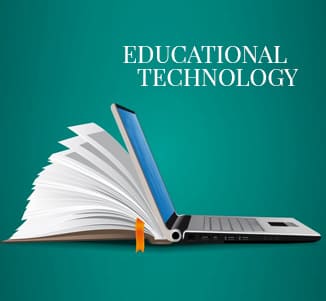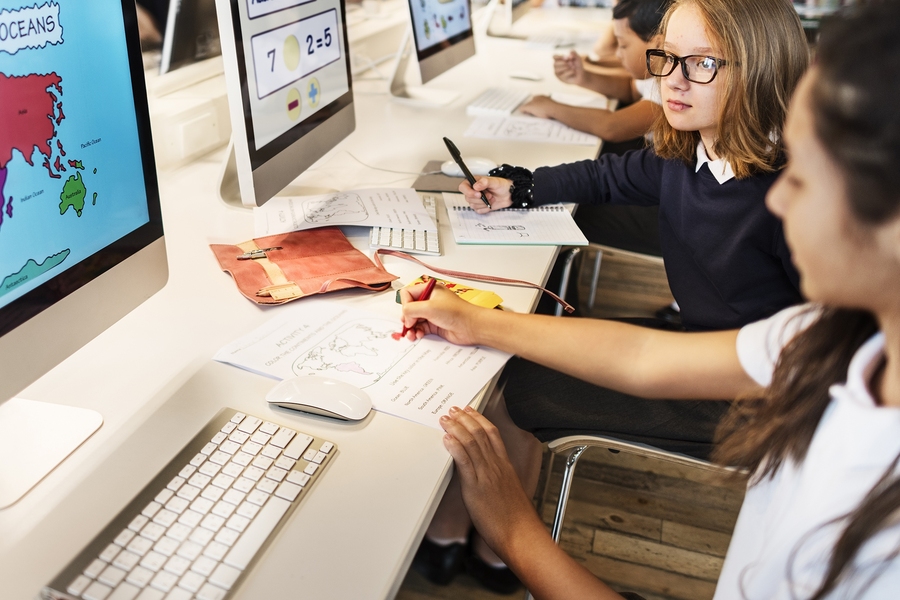Secure Your Future with Inexpensive and Dependable Insurance
Secure Your Future with Inexpensive and Dependable Insurance
Blog Article
Important Resources for Institutions to Boost Their Technique to Innovation Education
As organizations aim to improve their innovation education structures, the recognition and application of essential sources become critical. Ingenious curriculum styles that incorporate modern technology, together with reliable online discovering platforms, can substantially expand instructional ease of access and involvement.
Ingenious Curriculum Styles
In today's rapidly evolving technological landscape, instructors are increasingly identifying the demand for ingenious educational program layouts that successfully incorporate innovation into finding out experiences. This assimilation is essential for preparing trainees for a future where electronic literacy is critical. Cutting-edge educational program layouts include numerous pedagogical methods, guaranteeing that technology serves as a device for improving involvement and facilitating deeper learning.
One effective approach is project-based understanding (PBL), where pupils involve in real-world troubles, making use of modern technology to research, work together, and present their searchings for. This method not just cultivates vital reasoning however additionally motivates the advancement of soft skills such as team effort and communication. Additionally, adaptive knowing modern technologies can customize the educational experience, dealing with private discovering designs and rates.
In addition, interdisciplinary strategies that blend subjects, such as incorporating science and technology with the arts, help create a more holistic discovering atmosphere. This cultivates imagination and advancement, gearing up students with the abilities required to grow in a facility, interconnected globe. Ultimately, innovative curriculum designs are vital for cultivating a generation of students who are not just proficient in innovation but are additionally proficient problem solvers and important thinkers.
Online Understanding Operatings Systems
Several instructors are turning to on the internet discovering systems as essential tools for enhancing academic ease of access and interaction. These systems promote a hybrid learning setting that fits diverse understanding styles and rates, making education and learning more comprehensive. They use a series of resources, consisting of video clip talks, interactive simulations, and conversation online forums, making it possible for trainees to accessibility material from anywhere at any moment.
Famous online discovering systems, such as Coursera, edX, and Moodle, supply institutions with the infrastructure needed to deliver high-quality modern technology education. These platforms can be customized to align with particular educational program objectives and pedagogical methods, making sure that establishments can keep their instructional criteria while leveraging electronic resources.
In addition, online discovering platforms sustain collaboration amongst educators and students, promoting a feeling of area and shared finding out experiences. Advanced analytics tools available on these platforms permit teachers to track student progress and engagement, helping with prompt interventions when needed.
Professional Growth Opportunities
Continual specialist development is essential for educators seeking to stay abreast of arising innovations and pedagogical techniques in a quickly advancing educational landscape (Make Money). To efficiently incorporate technology right into the classroom, educators should actively seek possibilities that boost their skills and knowledge
Institutions should focus on offering courses, seminars, and workshops concentrated on the most up to date technical developments and teaching techniques. These programs can address different elements of modern technology education, consisting of coding, electronic proficiency, and the use of academic software program. Furthermore, partnering with regional colleges and technology companies can provide teachers accessibility to specialized training and resources.
Online professional advancement systems also provide versatility, enabling educators to engage in self-paced understanding. Webinars and virtual conferences can assist in expertise sharing among instructors worldwide, promoting an international perspective on innovation integration.
Furthermore, mentorship programs can connect seasoned instructors with those brand-new to technology, advertising joint understanding and assistance. By developing a society of continuous understanding, organizations can encourage instructors to embrace innovative mentor techniques, ultimately improving student involvement and success in innovation education and learning. Buying specialist development not only benefits educators yet also considerably enriches the discovering experience for trainees.
Joint Devices and Resources
Effective integration of technology in education and learning additionally counts on the use of collaborative directory tools and Check Out Your URL resources that assist in interaction and team effort among teachers and students. Such devices enhance engagement and foster a society of partnership, critical for modern-day understanding settings. Platforms like Google Office and Microsoft Teams allow real-time file sharing, task management, and smooth interaction, permitting groups to interact efficiently no matter of geographical obstacles.
Furthermore, finding out management systems (LMS) such as Canvas and Moodle supply organized environments for cooperation, where educators can develop online forums, designate team tasks, and facilitate conversations. These systems not only improve instructional delivery however additionally encourage peer-to-peer interaction, vital for constructing crucial reasoning and problem-solving skills.
In addition, tools like Padlet and Trello can be used to imagine concepts and manage tasks collaboratively, boosting project-based understanding experiences. By including these joint resources, organizations empower both instructors and trainees to add proactively to their learning journeys. Eventually, the efficient use collective devices not just enriches the educational experience but likewise prepares pupils to prosper in a progressively interconnected globe.
Neighborhood and Sector Collaborations
Area and industry collaborations play a crucial role in boosting innovation education by bridging the gap between theoretical knowledge and sensible application. These collaborations give pupils with real-world experiences, enabling them to use classroom ideas to real challenges encountered by companies. By engaging with neighborhood businesses and area companies, educational institutions can produce vibrant knowing environments that foster innovation and ability advancement.

Furthermore, these partnerships can cause source sharing, where establishments gain from market technology, funding, and experience. Such assistance not only improves instructional offerings but likewise assists to cultivate a labor force that is well-prepared for the difficulties of the contemporary economic situation. Ultimately, the synergy produced with neighborhood and sector partnerships is important for fostering a culture of constant knowing and adaptation in innovation education, ensuring that establishments remain responsive to evolving technological landscapes.
Verdict

One reliable technique is project-based understanding (PBL), where pupils involve in real-world problems, utilizing innovation to study, collaborate, and present their findings. Additionally, adaptive learning modern technologies can personalize the instructional experience, providing to individual discovering styles and speeds.
Additionally, mentorship programs can link experienced instructors with those new to innovation, promoting collective learning and assistance. By developing a society of continuous discovering, institutions can empower educators to embrace cutting-edge teaching strategies, eventually improving student engagement and success in technology education and learning. Eventually, the harmony developed through area and sector partnerships is important read for promoting a culture of continuous knowing and adaptation in modern technology education, ensuring that establishments remain responsive to developing technological landscapes.
Report this page